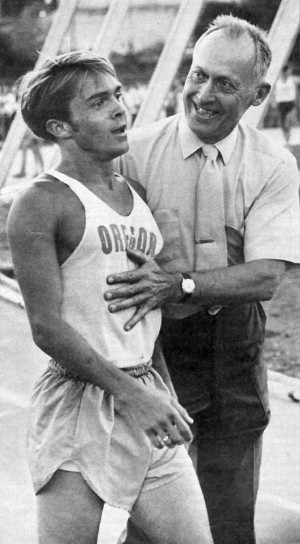There are so many running resources available online today: Runner’s World, Active, and Running Times among others. Each has training plans for beginner, intermediate, and advanced runners depending on the race. While it’s a good start and they have certainly motivated thousands to run, I wouldn’t recommend using one of these stock plans.

Sure, they’re easy and free. Just go to one of the websites, choose your goal race and running level (however arbitrary levels like “intermediate” may be), and you have a 12-week program for that 5k coming up. But are these stock running programs the best choice for runners who care about their running and want to improve?
I say absolutely not. If you want to train seriously – as a new runner looking to run your first race, or a seasoned athlete who wants to run a personal record – then stock plans are not the best route for accomplishing your goals. For your best results you will want a more personalized approach to your training. A custom training plan from an online running coach or in-person coach will come with personalized benefits (like considering your injury history or schedule) and will help you not only run fast, but avoid injury and learn more about your training.
A lot of runners think they don’t need a coach. I’m one of them. But I also had several coaches throughout my 8 years of distance running in high school and college. I spend most of my free time talking about running, writing about running, or reading about running. I tend to think I know my stuff. Just as a web programmer wouldn’t hire another web programmer, I am not going to hire a coach.
But most people don’t have over a decade of experience being a runner, the majority of the time spent with a coach. Most people don’t read about running constantly. That’s where having a coach can be hugely beneficial. Training needs to be personalized so you know when to back off and when to train hard. You need to do all of the “little things” that help prevent injury.
The most common (and by far, the easiest) option for most people is getting an online coach who can develop a custom training plan for your goal race. You could also join a local running group or find a coach in your region who can work with you one-on-one, but these options tend to be either too logistically time-consuming or expensive.
A coach, whether in-person or online, can help you reach goals faster and safer than a stock plan or winging it by yourself. I’m personally in favor of runners getting a coach, and here’s why.
1) Stock plans don’t consider your fitness baseline. Your “fitness baseline” doesn’t necessarily have to do with running, but rather your overall level of athleticism at this point in time. Even new runners can be completely different athletically – my main point of contention with these one-size-fits-all training plans. The non-runner who plays basketball twice per week and lifts weights is in far better shape than the coach potato. Both are new to running, but should they use the same training program? No way!
2) Stock plans lack customization. These programs don’t consider a person’s running history (besides the vague beginner, intermediate, and advanced distinctions), professional and family schedule, and injury history. They also don’t offer personalized advice and workouts tailored to the strengths of a particular athlete. These are huge perks and advantages that uncoached runners are doing without.
3) Typical online running plans are only about running. To quote Jay Johnson, good runners need to be good athletes. A custom program will include (if it’s any good, of course) lifting advice, general strength workouts, core exercises, and specific types of running that make you stronger, resistant to injury, and an overall better runner. Take a look at any elite runner’s training and running only occupies half to a third of their total training!
4) There’s no flexibility in stock programs. It’s just a monthly calendar with each workout prescribed daily. The workouts are set with no variation, and we all know variation is paramount to getting faster and avoiding injury. Workouts and total running volume should be modified occasionally based on how your body feels, what’s going on in your personal or professional life, and the progression of your training. Small variations include all of the “little things” that help you get stronger and avoid injury – the diet and recovery recommendations, the efficient form and biomechanics tips, and race-day suggestions to help you run your best.
The most common objection to getting a personal coach is price. Online coaches can cost up to $150 per month and in-person coaches can cost that much per session. There are certainly more reasonable options that still include the perks I outlined above (like Strength Running), but often it’s an additional burden to runners.
If runners stopped buying non-essential toys that aren’t going to make them faster, and instead invested in a running coach, we would see faster runners at races across the country. Nike and Garmin may see a decline in sales, but they’re not in the business of making you a better runner. They’re in the business of outfitting you with expensive gear.
How many of you avoid the high-tech gadgets and work with a running coach? Do you think it was worth it? Has anybody found the cookie-cutter online programs to be frustrating?